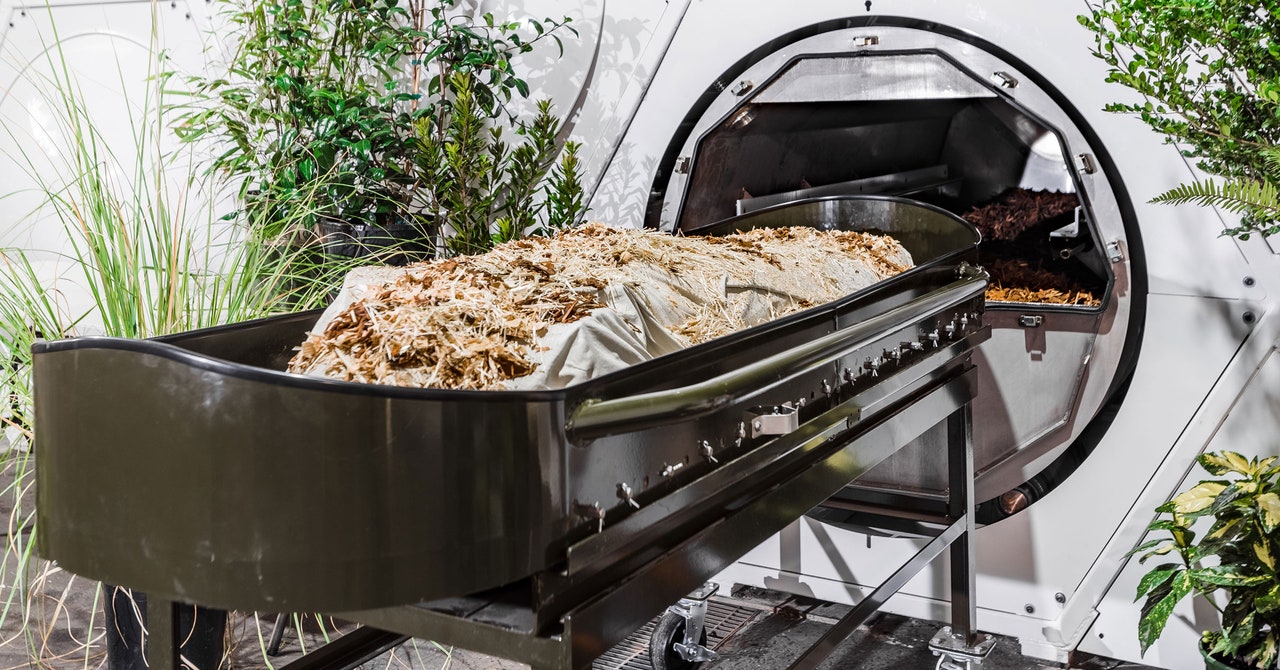
In the years since, at least three companies have sprung up in Washington alone, some of which have secured millions in funding from venture capital firms. And with more states catching on, entrepreneurs say the industry is livelier than ever.
At least six states have legalized the process so far, and California, the most populous US state, will allow human composting in 2027 after a law passed last year goes into effect, opening up the potential for millions of new customers.
“In Washington, where human composting has been legal for some time, the industry is concentrated and hyper-competitive,” Truman said. “But I’m sure everyone is going to be doing pushups and getting ready to go to California as soon as it opens.”
The commercialization of alternative deathcare is already creating tension in an industry built on a fraught product. It’s difficult to get people to talk about death, much less invest in it. This has left deathcare entrepreneurs and advocates for greener death grappling to balance altruistic goals with the demands of startup culture, according to Caitlin Doughty, a mortician and author of several books about death and the funeral industry.
“There is a newer disconnect between the fundamental idea of ritual around death in human composting versus a bizarre appeal to Silicon Valley that is emerging,” she said. “It is a fascinating development.”
With the traditional funeral market worth $20 billion, it is no surprise new technologies have piqued the interest of tech investors. A 2019 survey from the funeral directors’ association found that nearly 52 percent of Americans expressed interest in green-burial options, and experts have estimated that the emerging market opened by legalization efforts in Massachusetts, Illinois, California, and New York could create a market value in the $1 billion range.
There is also a growing market in Gen Z and millennials, who have been called the “death-positive” generations—more willing to discuss after-life plans at younger ages and to try green alternatives. Startups are rising to the occasion with social media outreach: Return Home has more than 617,000 followers on TikTok, where its employees answer questions like “what happens to hip replacements in the human composting process?” and “how does it smell during the process?”
Human composting is not the only alternative deathcare option that is seeing increased interest. Others include aquamation, a process legal in 28 states by which the body is turned into liquid and then powder. Green burial, in which bodies are interred without embalming or a casket and allowed to decompose naturally over time, is legal in almost all states, but laws vary as to where the body can be buried.
But of all the alternative options, human composting seems to have gotten the most attention, said Doughty.
“I do see the composting space as being uniquely competitive in a way that I haven’t seen with [processes] like aquamation, or even cremation,” she said. “It seems uniquely positioned at a nexus of climate change policy and new technology that appeals to the Silicon Valley ethos.”
A Focus on Ethics
The environmental benefits of alternative deathcare have become a large selling point for companies as green investments trend upward. Transcend, a New York-based green burial startup that promises to turn human bodies into trees after death, highlights its goal of mass reforestation and eco-friendly burial in its advertising, stating on its website: “Every Tree Burial creates a healthier foundation for all life on Earth.”
Its founder and CEO, Matthew Kochmann, has a Silicon Valley background, counting himself as one of the first employees at Uber. He came to the deathcare industry after meditating on the spiritual nature of burial options, he says.


